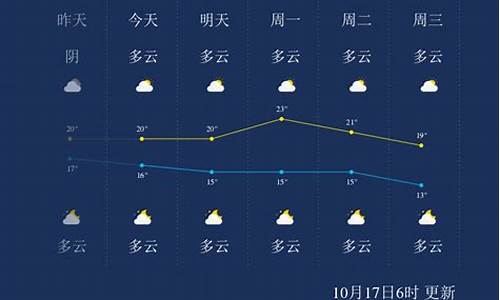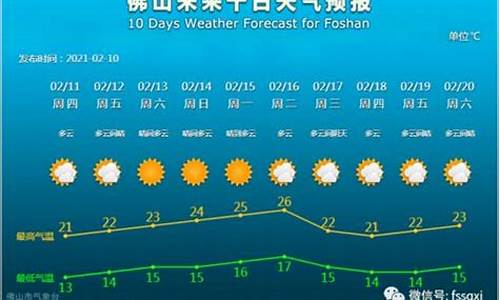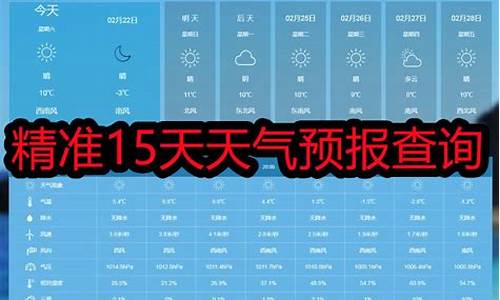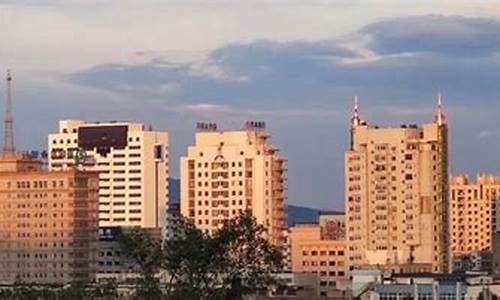五年级英语一周天气表格_五年级英语天气单词
1.(十万火急)小学五年级第一学期英语词汇,我要全部的,UNIT1~UNIT12的,光UNIT6~UNIT12也可以
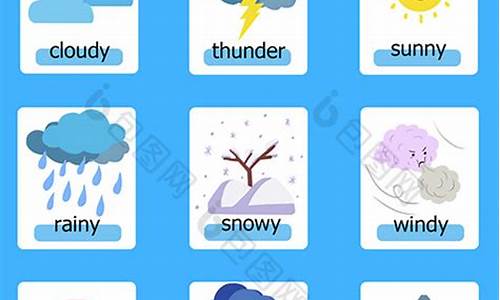
Hi, everybody. Let me tell you the how the weather is like today. It is 26~32'C , a little hot maybe. You can wear a T-shirt . There is a shower and some wind at night , so don't get caught in the rain! See you tomorow , friends!
(十万火急)小学五年级第一学期英语词汇,我要全部的,UNIT1~UNIT12的,光UNIT6~UNIT12也可以
五年级下册英语第二单元知识点整理
一、主要单词和短语: season
季节 spring
春天 summer 夏天 fall 秋天 winter 冬天 swim 游泳 fly kites 放风筝 skate 滑冰 make a snowman 堆雪人 plant trees
种树
二、主要句子:
Which season do you like best? 你最喜欢哪个季节?
I like winter best. 我最喜欢冬天。
Summer is good, but fall is my fourite season. 夏天是很好,但是秋天是我最喜爱的季节。
Why do you like summer? 你为什么喜欢夏天?
Because I can swim in the lake. 因为我可以在湖里游泳。 Why do you like winter? 你为什么喜欢冬天?
Because I can sleep a long time. 因为我可以睡很长时间的觉。
三、知识点
同义词:autumn-fall(秋天)
三单:say-says ask-asks come-comes
对应词:wake up-sleep go to bed-get up
同义句:What's your fourite season?(你最喜欢的季节是什么?)----Which season do you like best?(你最喜欢哪个季节?)
play with 玩雪,play in the snow在雪中玩 , 如果在横线后面有the ,则选择in , 如果在横线后面没有the , 则选择 with.
like后面不能直接跟动词。如果需要跟动词或动词性词组时,则需在like后面加to. 如果不加to. 就要把后面的动词变成相应的动名词形式。 如:I like to swim ===I like swimming.
当表示某地某个季节的天气情况时,要把季节放在前面,地点放在后面。其结构为:What's the weather like in 季节in 地点?
五年级下册英语第三单元知识点整理
一、主要单词:
January (Jan.) 一月 February (Feb.) 二月 March (Mar.) 三月
April(Apr.) 四月 May 五月
BAIDU_CLB_fillSlot( '920966' );
June 六月 July 七月 August(Aug.) 八月 September(Sept.) 九月
October( Oct.) 十月
November (Nov.) 十一月 December ( Dec.) 十二月
二、主要句子
1. When is your birthday? 你的生日是什么时候 --It's in May. 在五月。
2. My birthday is in June. Uncle Bill's birthday is in June, too. 我的生日在六月。比尔叔叔的生日也在六月。
3. Is her birthday in June? 她的生日在六月吗? --Yes. 是的。 4.What's the date? 是几月几日? --June 9th . 六月九日。
5. What's the date today? 今天是几月几日? -- It's April 10th. 四月十日。
三、主要知识点: 1、关于月份:
(1)五月May , 六月June, 七月July,没有简写形式。九月September 的简写形式是前四个字母加点Sept. 其他八个月的简写形式是前三个字母加点。
(2)无论是完全形式还是简写形式,表示12个月的单词的第一个字母都要大写。 2、关于基数词变序数词。
(1)一般情况下,直接在基数词后面加th. (one , two , three 除外)。one-first , two-second , three-third .
(2) 以ve结尾的基数词,变ve为f, 再加th. 如:five-fifth , twelve-twelfth. (3) 以t结尾的基数词,直接加h.如eight-eighth.
(4) 以不发音的字母e结尾的,丢掉不发音的字母e,再加th. 如 nine-ninth.
(5) 以y结尾的整十数,在变为序数词时,将y变为ie, 再加th. 如twenty-twentieth . (6)20以上的两位数,变为序数词时,十位数不变,只将个位上的数变为序数词。如:twenty-one----twenty-first , twenty-two-twenty-second , thirty-four-thirty-fourth .
(7)序数词的简写形式为表示该词的阿拉伯数字加上该单词的最后两个字母,最后两个字母要变成上标格式。如:first-1st , second-2nd , third-3rd , fourth-4th . twentieth-20th 3. 在回答 When is your birthday? 这个问题时,如果只说明生日在几月份,在月份前用in. 如 My birthday is in July.
如果要具体说明生日是在几月几日,则要把in去掉,直接用is,或者在is后加on. 如 My birthday is June 9th. 或 My birthday is on June 9th . 4.注意区分两个句子:What day is it today ? 今天星期几? What's the date today? 今天是几月几日? 5. 根据要求写单词:
make (现在分词)---making. send( 现在分词)---sending.
6.句子:How many birthdays are in October ? 有几个人的生日在十月? There are 3. 7. My birthday is in February . (变为一般疑问句)---Is your birthday in February?
8. Does she he a computer? 她有计算机吗?当第三人称单数和句子中出现了does时,其他动词必须使用原型。
9、读序数词时,前面一定要加the. 如 October 1st .读作October the first.
10、同义句: Who has a birthday in October?===Whose birthday is in October?
五年级下册英语第四单元知识点整理
一、主要单词:
draw pictures 画画 drawing pictures 正在画画
do the dishes 洗碗碟 doing the dishes 正在洗碗碟 cook dinner 做饭 cooking dinner 正在做饭
BAIDU_CLB_fillSlot( '9200' );
read a book 读书 reading a book 正在读书
answer the phone 接电话 answering the phone 正在接电话 listen to music 听音乐 listening to music 正在听音乐 wash clothes 洗衣服 washing clothes 正在洗衣
clean the room 打扫房间 cleaning the room 正在打扫房间 write a letter 写信 writing a letter 正在写信
write an e-mail 写电子邮件 writing an e-mail 正在写电子邮件
二、主要句子:
1. This is Zhang Peng .(电话用语)我是张朋。 What are you doing? 你正在干什么? 2.I'm doing the dishes. 我正在洗碗碟。 I'm reading a book. 我正在读书。
3.Grandpa is writing a letter. 爷爷正在写信。 Brother is doing homework. 弟弟正在做作业。
4.Mom is cooking dinner in the kitchen. 妈妈正在厨房里做饭。
5.Dad is writing an e-mail in the study. 爸爸正在书房里写电子邮件。 三、知识点:
1、在电话中介绍自己时,可以用“It's ? ”或者‘This is ?'.但是不能用“I am ?”或者“My name is ?”
2.在电话中表另一个人接电话时,应该说:“Can I speak to ??” 3、告诉别人接电话时,说:There is a call for you.
4、在接电话时请别人稍候说:Hold on please.或者 Please hold on. 5、动词变为现在分词(加ing)的规则:
(1) 一般情况下,在动词的后面直接加ing.
如:play-playing clean-cleaning draw-drawing cook-cooking (2) 以单个不发音的字母e结尾的动词,去掉不发音的字母e,再加ing .
如:write-writing come-coming take-taking make-making lee-leing he-hing (3) 以重读闭音世结尾的动词,如果词尾只有一个辅音字母,则要先双写这个辅音字母,再加ing.
如: run-running swim-swimming put-putting sit-sitting set-setting
五年级下册英语第五单元知识点整理
一、主要单词:
fly 飞
flying 正在飞 walk 走
walking 正在走 jump 跳 jumping 正在跳
run 跑 running 正在跑 swim 游泳
swimming 正在游 climb 爬 climbing 正在爬 fight 打架 fighting 正在打架 swing 荡秋千 swinging 正在荡秋千 drink water 喝水
drinking water 正在喝水
二、主要句子:
1. What is it doing? 它正在干什么?
It's eating bananas. 它正在吃香蕉。 2. What is she doing? 她正在干什么? She is jumping. 她正在跳。
3. What are they doing? 它们正在干什么? They are swimming. 它们正在游泳。 They are climbing trees. 它们正在爬树。
三、主要知识点:
1、在英语中,当表示妈妈时,无论是人类妈妈还是动植物的妈妈,都可以用she . 而表示婴儿时,也都可以用it. 2、系动词be 的用法:我是am你是are, is跟着他她它。如果人称是复数,扑面一律都用are. 如:I am reading a book. He is cooking dinner.
We are doing an experiment. Are you eating lunch?
3、With 除了表示和?一起外,还可以表示“使用”,如:
That elephant is drinking water with its trunk.大象正在用它的象鼻喝水。 I am writing with my pen.我正在用我的钢笔写字。 4、当句子中出现了can时,动词一定要用原形。 如:Can tigers really swim?
I can wash the clothes.我会洗衣服。
5、can , usually , often , sometimes , always 这几个单词都是一般现在时的好朋友,当句子中出现了它们时,动词一般都要用原形。
now, am , is , are 这几个单词都是现在进行时的好朋友,当句子中出现了它们时,动词要用现在分词形式,也就是ing形式。
五年级下册英语第六单元知识点整理
一、主要单词
pick up lees 摘树叶
picking up lees 正在摘树叶 catch butterflies 捉蝴蝶 catching butterflies 正在捉蝴 take pictures 照相
taking pictures 正在照相 watch insects 观察昆虫 watching insects 正在观察昆虫
do an experiment 做实验 doing an experiment 正在做实验 he a picnic 举行野餐 hing a picnic 正在举行野餐 count insects 数昆虫
counting insects 正在数昆虫 write a report 写报告 writing a report 正在写报告 collect lees 收集树叶
collecting lees 正在收集树叶 play chess 下棋 playing chess 正在下棋
二、主要句子
1. Are you eating lunch ? 你们正在吃午饭吗?
No, we aren't. 不,我们不是。
2. Are they eating the honey? 它们正在吃蜂蜜吗? Yes, they are. 是的,它们是。 3. Is he playing chess? 他正在下棋吗? Yes, he is. 是的,他是。 4. Is she writing a report? 她正在写报告吗 No, she isn't. 不,她不是。
三、主要知识点:
1、现在进行时的句子变一般疑问句时,只要将系动词be(am is are )和主语交换位置,将句末的句号变为问号,
但是要注意第一人称和第二人称时,人称和系动词的相应变化。 如:I am reading a book? ------Are you reading a book? You're walking . -----Am I waling?
He is cooking dinner . -------Is he cooking dinner?
2. 表示用什么做个实验时,要用on.如 Do an experiment on me , please. 3. It's time to 后跟动词的原形,It's time for 后跟名词。 如:It's time to go to school. 该去上学了。(到了去上学的时间了。)
It's time for English class. 到了英语课的时间了。 It's time to he English class. 该上英语课了
do morning exercises eat breakfast he English class play sports eat dinner get up climb mountains go shopping play the piano visit grandparents go hiking usually often sometimes
When do you eat dinner? I eat dinner at 7:00 in the evening. When do you get up? I usually get up at 12:00 at noon.
What do you do on the weekend? Usually I watch TV and go shopping. Sometimes I visit my grandparents.
What about you? I often play football. Sometimes I go hiking.
Unit 2: spring summer fall winter season which best swim fly kites sleep skate make a snowman plant trees why because Which season do you like best? I like winter best.
Summer is good, but fall is my fourite season. Why do you like summer? Because I can swim in the lake.
Why do you like winter? Because I can sleep a long time.
Unit 3: January (Jan.) February (Feb.) March (Mar.) April (Apr.) May June July August (Aug.) September (Sept.) October (Oct.) November (Nov.) December (Dec.) birthday uncle her date
When is your birthday? It’s in May. My birthday is in June. Uncle Bill’s birthday is in June, too.
Is her birthday in June? Yes. What’s the date? June 9th .
Unit 4: draw pictures cook dinner read a book answer the phone listen to music clean the room
write a letter write an e-mail mom grandpa study Hi, John. This is Zhang Peng.
What are you doing? I’m doing the dishes. I’m reading a book. Grandpa is writing a letter.
Brother is doing homework. Mom is cooking dinner in the kitchen. He’s writing an e-mail in the study.
Unit 5: fly jump walk run swim kangaroo sleep climb fight swing drink water
What is it doing? It’s eating bananas. What is she doing? She’s jumping.
What are they doing? They’re swimming. They’re climbing trees.
Unit 6: take pictures watch insects pick up lees do an experiment catch butterflies count insects collect lees write a report play chess he a picnic honey
Are you eating lunch? No, we aren’t. Are they eating the honey? Yes, they are.
Is he playing chess? Yes, he is. Is she counting insects? No, she isn’t.
六年级上册
Unit 1: on foot by bike by bus by train by plane by ship go to school traffic light traffic rule stop wait get to How do you go to school, Sarah? Usually I go to school on foot.
Sometimes I go by bike. How can I get to Zhongshan Park? You can go by the No.15 bus.
Unit 2:library post office hospital cinema bookstore where please next to turn right turn left go straight then
Where is the cinema, please? It’s next to the hospital. Turn left at the cinema, then go straight. It’s on the left.
Unit 3: next week this morning this afternoon this evening comic book post card newspaper buy
What are you going to do on the weekend? I’m going to visit my grandparents this weekend.
Where are you going this afternoon? I’m going to the bookstore.
What are you going to buy? I am going to buy a comic book.
Unit 4: hobby ride a bike dive play the violin make kites collect stamps live teaches watches goes does doesn’t=does not What’s your hobby? I like collecting stamps. He likes collecting stamps, too.
Does she teach English? No, she doesn’t. Does she teach you math? Yes, she does.
Unit 5: singer writer actor actress artist TV reporter engineer accountant policeman cleaner salesperson work What does your mother do? She is a TV reporter.
Where does she work? She works in a school. How does she go to work? She goes to work by bus.
Unit 6: rain cloud sun stream come from seed soil sprout plant should then
Where does the rain come from? It comes from the clouds. How do you do that? What should you do then?
六年级下册
Unit 1: taller shorter stronger older younger bigger heier longer thinner smaller
How tall are you? I’m 164 cm tall. You’re shorter than me. You’re 4 cm taller than me.
How hey are you? I’m 48 kg. I’m thinner and shorter than you
Unit 2: he a fever hurt he a cold he a toothache he a headache he a sore throat matter sore nose tired excited angry hy bored sad What’s the matter? My throat is sore.
My nose hurts. How are you, Liu Yun? You look so hy. How are you, Sarah? You look sad today.
Unit 3: watch - watched wash - washed clean - cleaned play - played visit - visited do - did
last weekend go - went read – read went fishing went hiking
What did you do last weekend? I played football. Did you read books? Yes, I did. / No, I didn’t.
Unit 4: learn Chinese – learned Chinese sing – sang dance – danced eat good food – ate good food
take pictures – took pictures climb a mountain – climbed a mountain buy presents – bought presents row a boat – rowed a boat see elephants – saw elephants went skiing went ice-skating get to – got to he – had Where did you go on your holiday? I went to Xinjiang.
How did you go there? I went by train.
等候 wait 走 walk
温暖的 warm 洗 wash
看 watch 西瓜 watermelon
星期三 Wednesday(Wed) 星期 week
(除星期六、日以外的)任何一天 weekday 周末 weekend
什么时候 when 有风的 windy
冬季 winter (狗)摇尾巴 wag its tail
穿 wear 水 water
谁 who 白色的 white
何时 when (饭店、旅店、餐厅等的)服务员 waiter
洗衣服 wash clothes 遛狗 walk the dog
看电视 watch TV 浇花 water the flowers
我们 we 在哪里 where
窗户 window 墙壁 wall
想要 want 卫生间 washroom
西瓜 watermelon 穿 wear
天气 weather 天气预报 weather report
欢迎 welcome 什么 what
为什么 what for 谁的 whose
用 with 步行 walk
想要 want 暖和的 warm
洗 wash 看电视 watch TV
路 way 我们 we
穿 wear 周末 weekend
冬天 winter 和… …一起 with
擦窗户 wash ths windows ……怎么样? What about…?
工作 work 为什么 why
走 walk 观察昆虫 watch insects
周末 weekend 什么时候 when
哪一个 which 冬天 winter
树林 woods 工作 work
写信 write a letter 写报告 write a report
写电子邮件 write an e-mail 等候 wait
醒来 wake up 想要 want
看 watch 路;道 way
星期 week 好 well
西 west 再哪里 where
同;和 with 工作 work
作家 writer 洗 wash
看 watch 穿 wear
周末 weekend 赢 win
烦恼 worry
(X x)
西安 Xi’an X射线 X-ray
(Y y)
年 year 年轻的 young
好吃的 yummy **的 yellow
是;是的 yes 你 you
你的 your 是;行 yeah
昨天 yesterday 更年轻的 younger
(Z z)
动物园 zoo 斑马 zebra
声明:本站所有文章资源内容,如无特殊说明或标注,均为采集网络资源。如若本站内容侵犯了原著者的合法权益,可联系本站删除。





